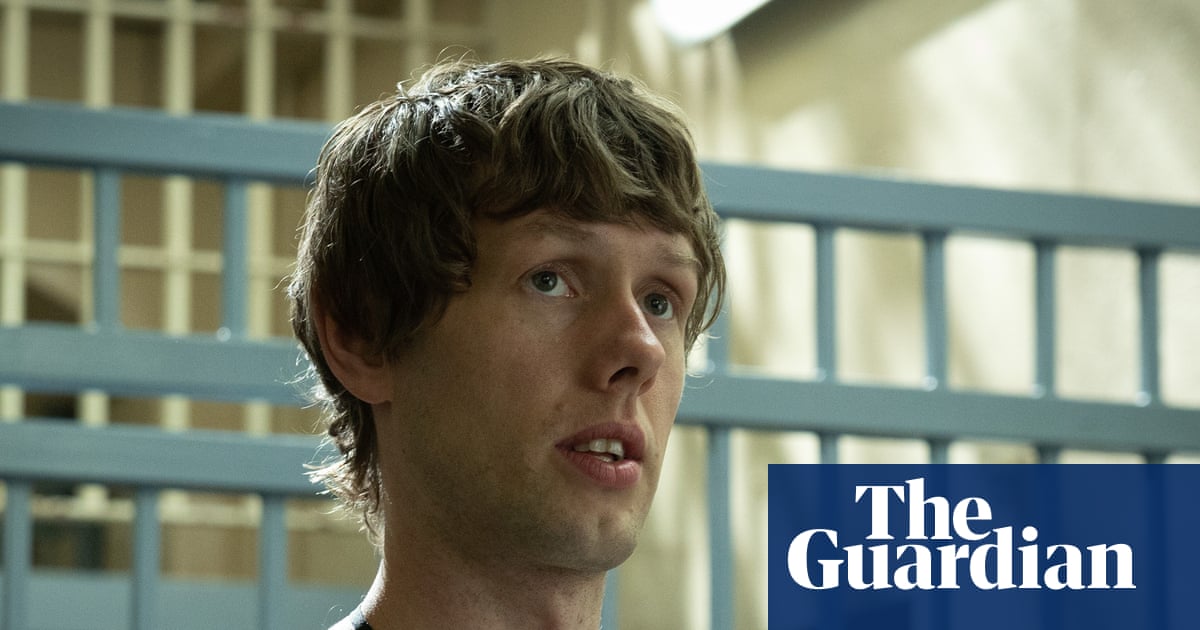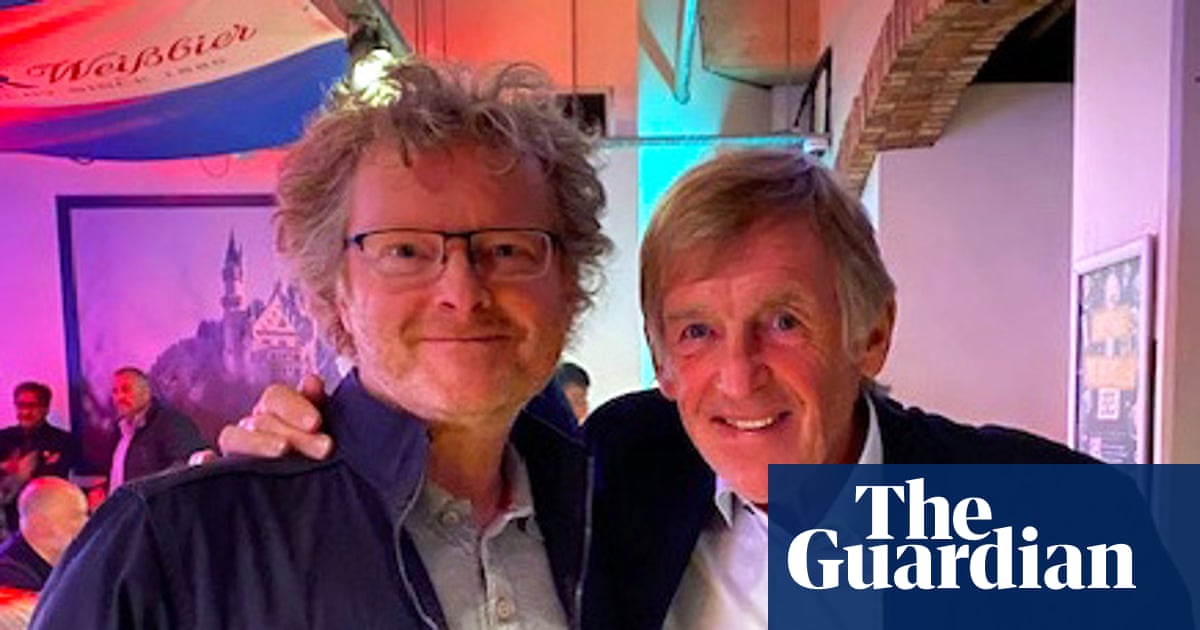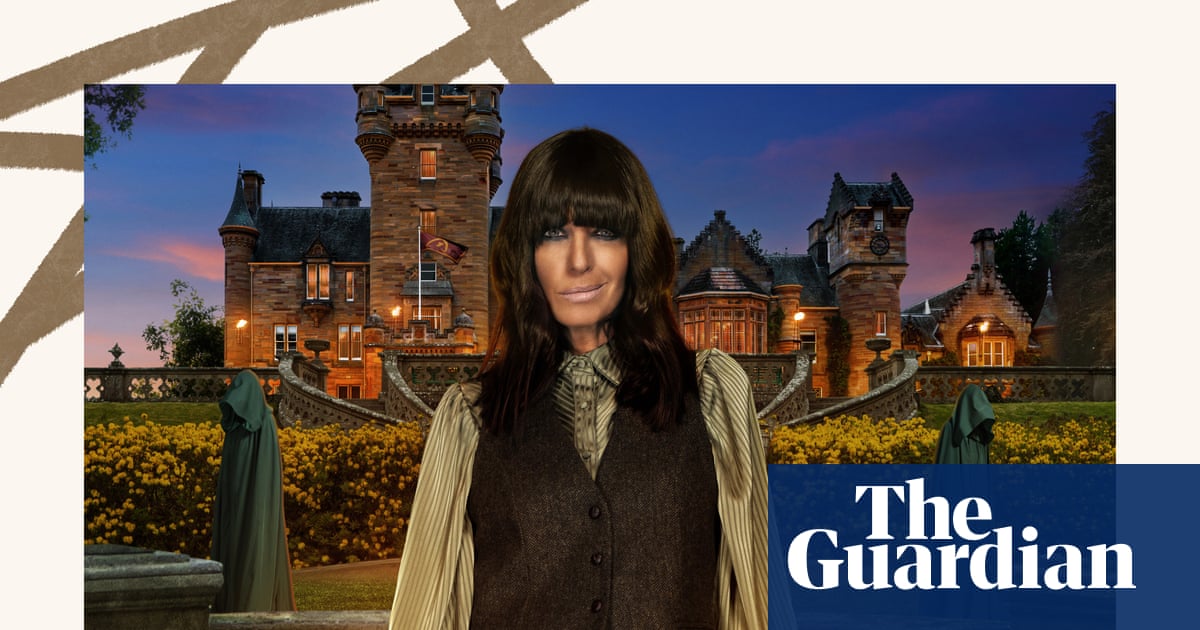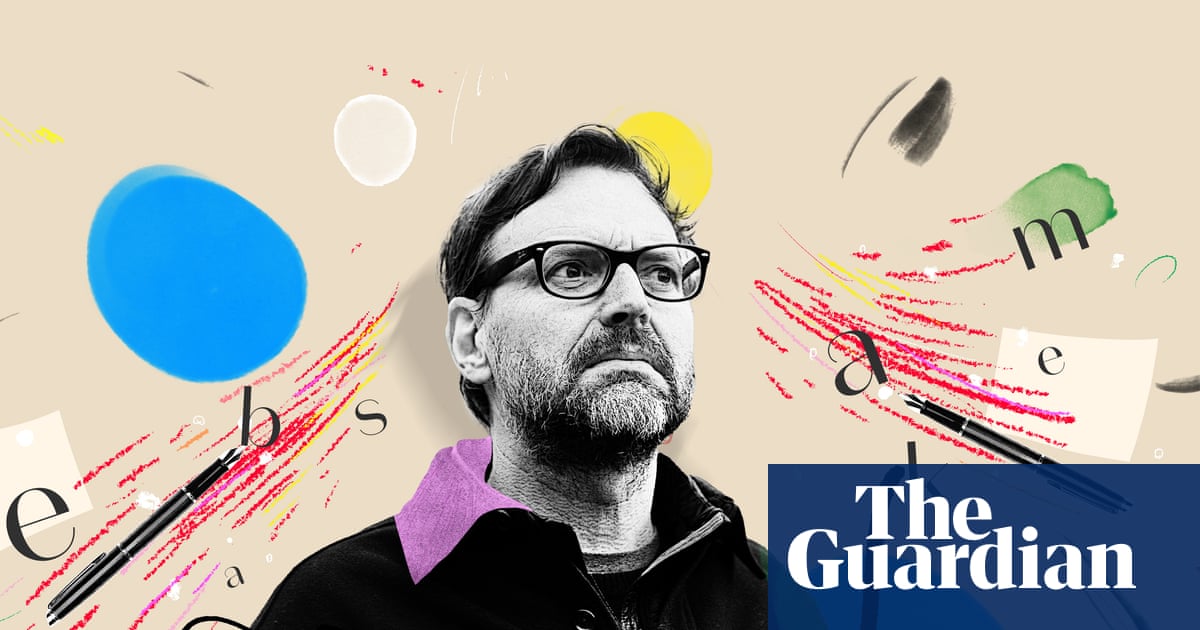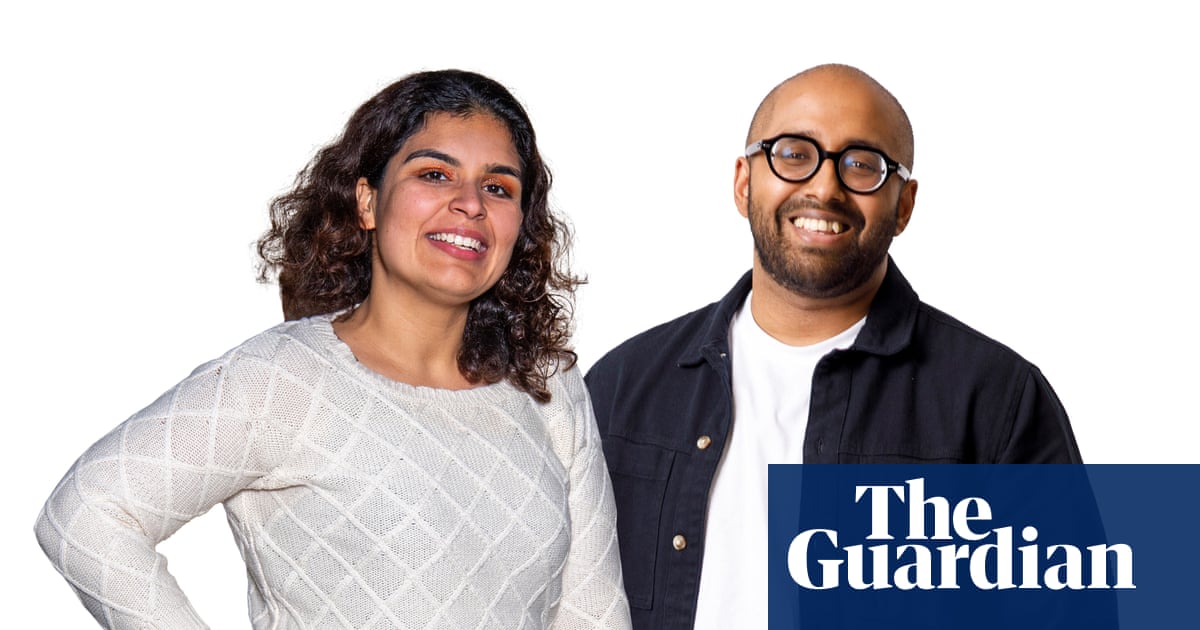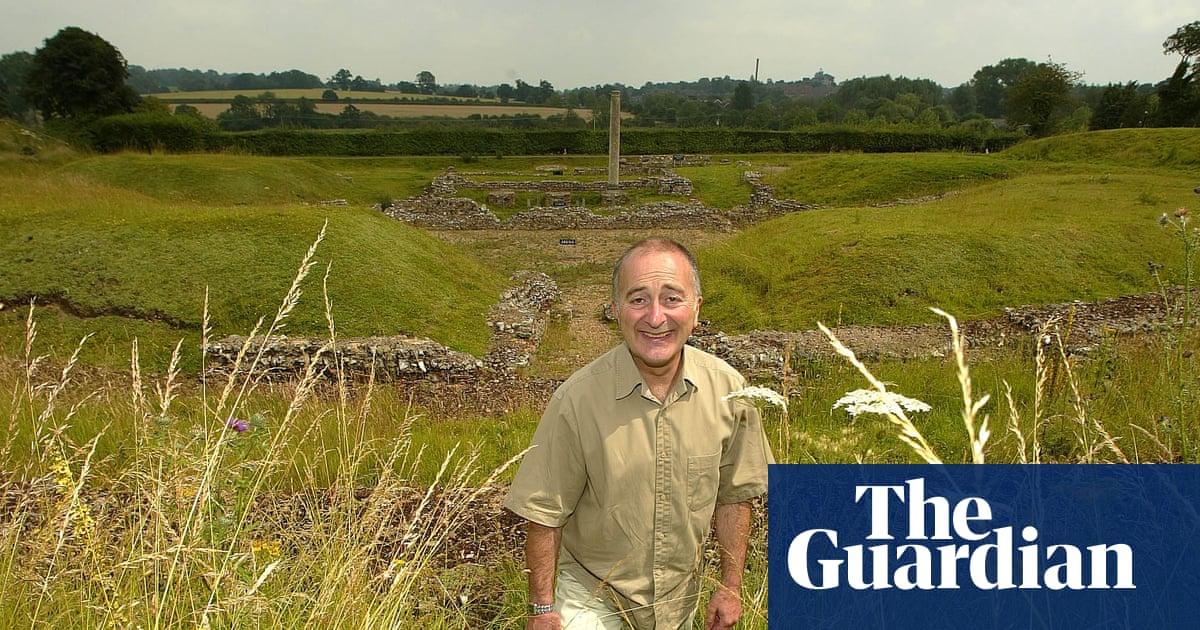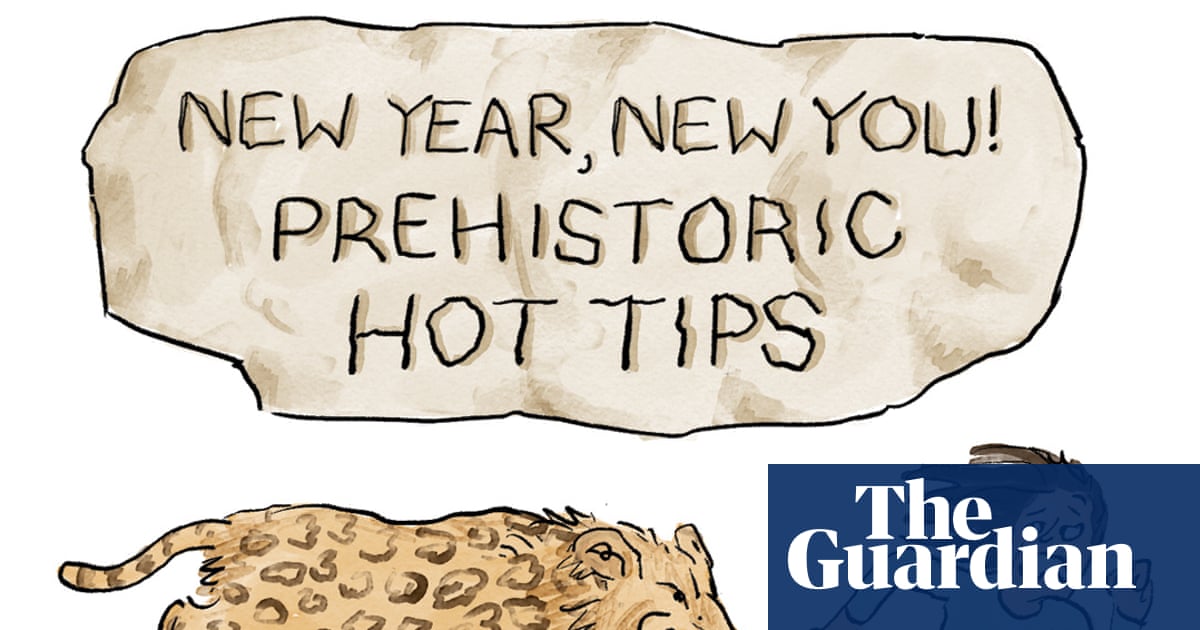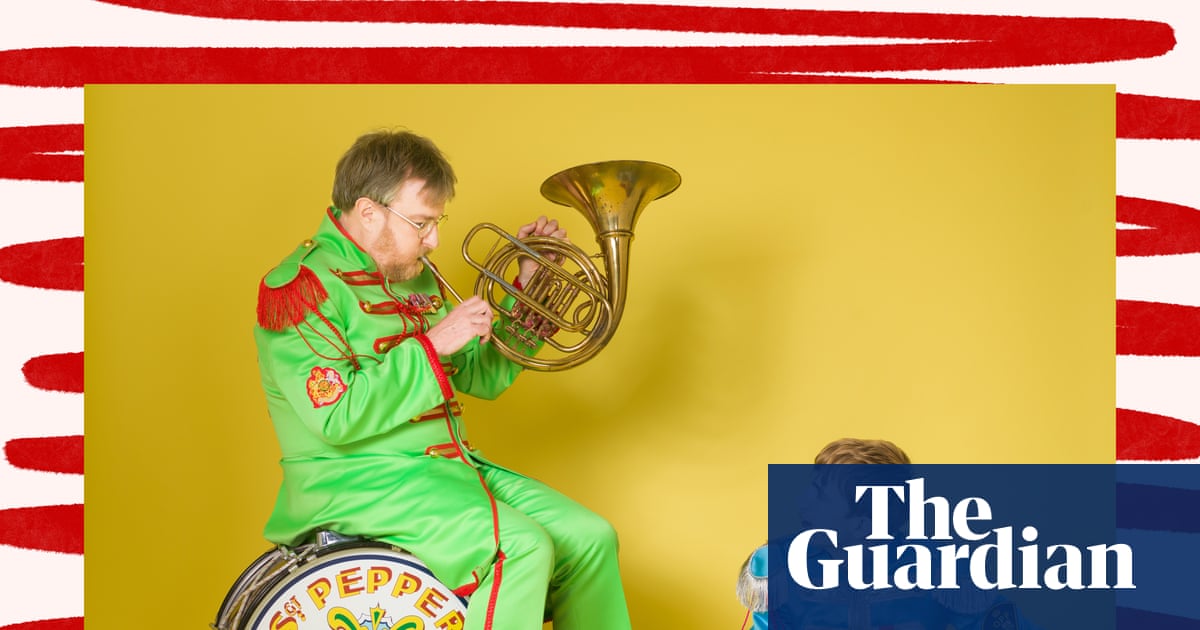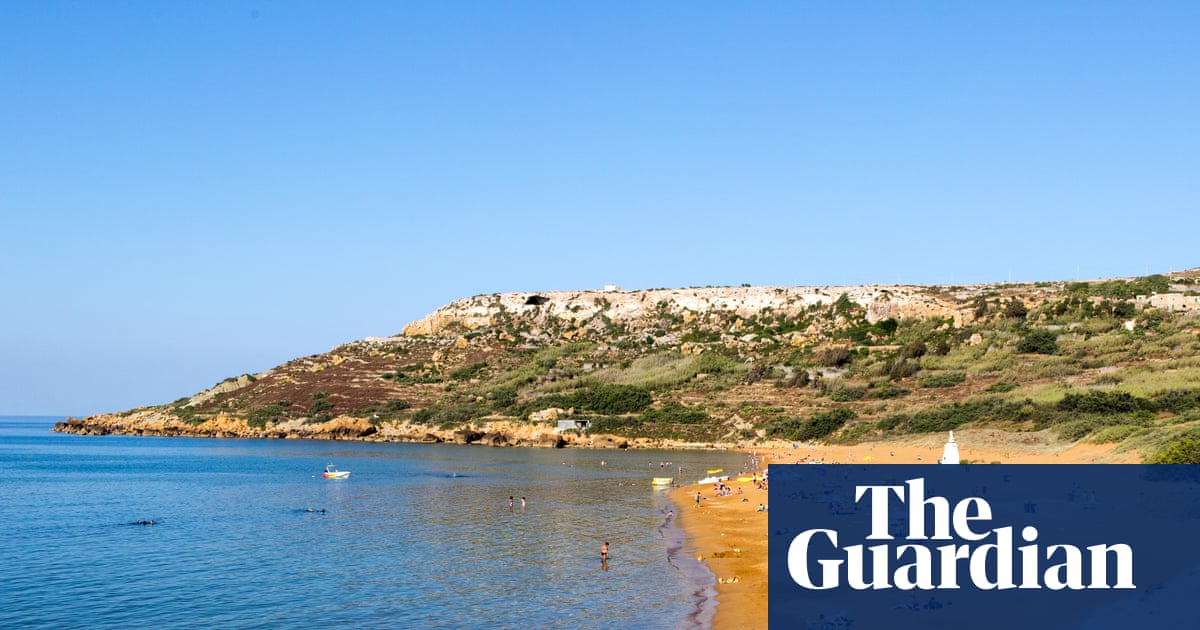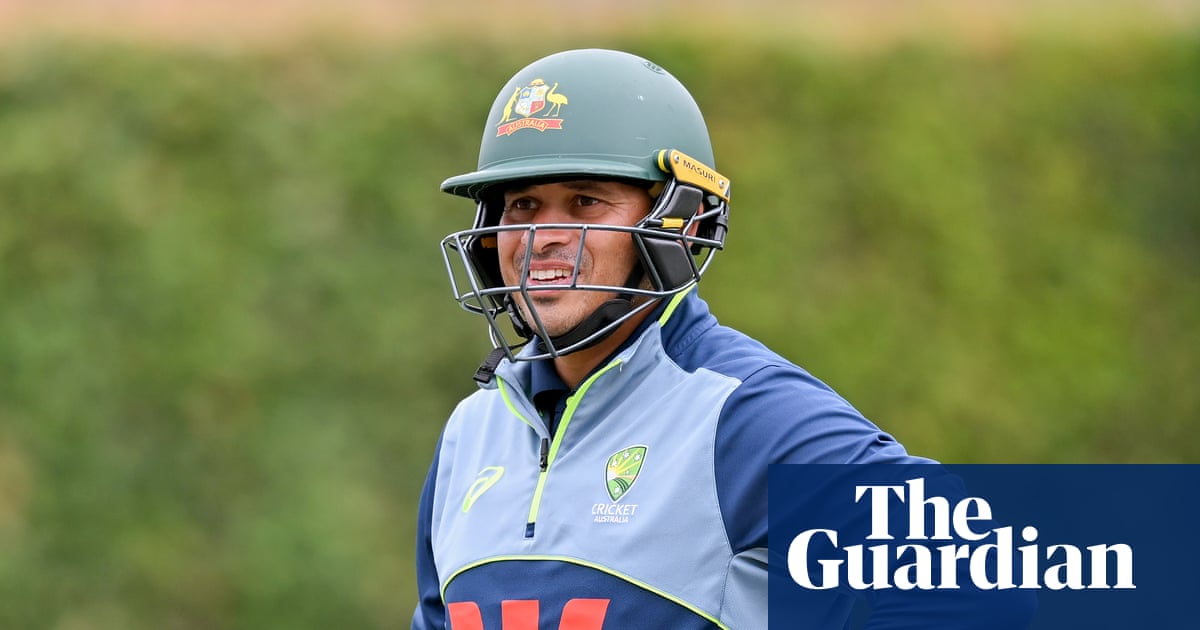How does one measure success? For Tom Holland and Dominic Sandbrook, the historians behind the hit podcast The Rest Is History, it could be the number of unexpected and overly familiar conversations with strangers. On a holiday high up in the mountains of Bulgaria, Holland was wandering around a secluded monastery when someone called out, “Love the podcast!”
Sandbrook, meanwhile, is used to getting weird looks from fans who find it hard to compute that the man in front of them is one half of the soundtrack to their dog walks and commutes. “The weirdest thing that people say – which I’ve heard more than once – is, ‘My wife and I listen to you in bed every night,’” he says, looking mildly appalled.
“Also, ‘I listen to you to get to sleep,’” adds Holland, in his instantly recognisable hushed tone, forever sounding as though he’s letting you in on a secret. “It’s always meant as a compliment. There’s something about our monotonous drone people just love. Maybe we need to try periodically shouting, just to keep people on their toes?”
“You do that already, Tom,” Sandbrook says. “Often in a German accent.”
If you’re among the millions who listen to the world’s most successful history podcast: yes, they are really like that – a genial, articulate odd couple who love to gently bully one another. If you haven’t heard it, The Rest Is History has these two British historians tackling the entire sweep of human history, explaining everything from the Neanderthals to the fall of Liz Truss. “We’re insanely hubristic,” Holland says.
Holland’s professional focus is antiquity and Sandbrook’s is modern history, though they are enthusiastic and entertaining storytellers no matter the topic. If you found history boring at school, this podcast will have you intently listening to 20 hours on the French Revolution – and that’s before even getting to the Terror. (They promise they will in early 2026 – “We’ve earned it,” Sandbrook says.) They have 15m downloads a month and more than half their audience is under 35. That their audience is so large, and so young, speaks to an appetite – or perhaps an anxiety – for the past to provide some answers about the present.
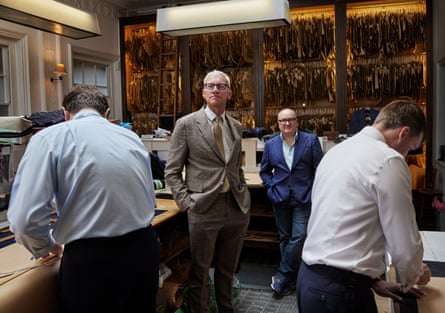
About 150 episodes of The Rest Is History come out each year, including the free regular shows, plus live shows and bonus episodes for roughly 80,000 paid subscribers. It’s lucrative and exhausting work: both men remain committed to doing all their research themselves.
“The mad thing is, we genuinely do all the reading and I still read people online saying, ‘Well, you can tell when they’re just reading out notes prepared by their researchers,’” Sandbrook complains. “I’ll be like, ‘I spent three weeks on that episode!’ And I’m not whingeing!”
“Well, you are a little bit,” says Holland.
When I ask how much time they spend together, they burst out laughing.
“All the fucking time!” Holland wails. “It never stops!”
Sandbrook, faux-wounded, responds, “This is sad to me, because I actually value every moment we spend together.”
Some of their subjects are sure-fire hits with listeners – the Romans, Atlantis and the Nazis – while their more offbeat successes include history’s greatest monkeys and Elizabeth I’s sorcerer, John Dee. But the biggest deciding factors for whether they cover a subject is whether they’ll enjoy researching it and whether it is a good story – meaning they often focus on the grand narratives of history, such as the first world war or Watergate, or the lives of interesting individuals.
“There are a few characters from history – General Custer, the Kaiser, General Gordon – who will never again have a better airing,” Sandbrook says. “They’re all basically slightly bad men.”
When they meet their fans – perhaps in a Bulgarian monastery – they will often say they hated history at school, which says more about how it is taught today. “People love history because of the story and the narrative,” Sandbrook says. “It’s a very basic question: what happened next?
“We’ve moved towards more storytelling, which is ironically the thing that history in schools has moved away from. And characters – which people don’t get particularly in schools, because it’s slightly frowned on and seen as not intellectually satisfying. We try to put the drama back in as much as possible. When Tom did his Mary, Queen of Scots series – that’s serious history, but also the stuff of a great HBO blockbuster.”
Their research often leads to personal obsessions. Holland has discovered a new appreciation for the British naval commander Horatio Nelson while researching for an upcoming four-parter (“It opens up whole vistas”); for Sandbrook it was Custer, who got eight episodes to himself: “When we got into the details of the beard grown by Custer’s father, I remember thinking, ‘Maybe that’s a little too much detail.’”
The two men met in 2005 at a charity quiz in London. “I recognised Tom was somebody who needed friends – lonely,” Sandbrook says.
“He took me under his wing,” says Holland, immediately playing along. “I was just sitting there, peeling a napkin.”
“Actually, I think it was because we both like The Lord of the Rings,” Sandbrook says. “Tom, were you not banned from watching the films at home?”
“My wife refused point blank,” Holland says. “And I had bought the director’s cut, which is even insanely longer than the original. I didn’t have anyone to watch it with, so I could watch it with Dominic, my new friend.”
It’s a lovely image, I say, but how do you bond with someone via a nine-hour film trilogy during which, I imagine, talking is very much forbidden?
“Ah, but it is a very male way to bond – you don’t have to talk, it’s brilliant,” Holland says. “Literally, even in my dreams, I find myself talking to Dominic now.” (For the curious, yes there is fan fiction written about them.)
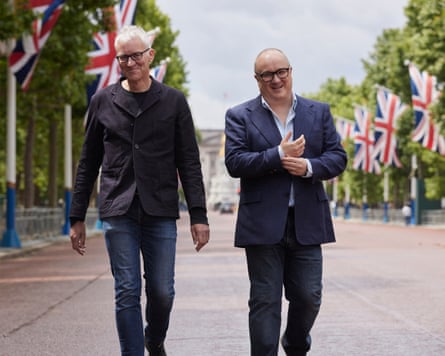
The Rest Is History began in 2020 when Goalhanger – Gary Lineker’s podcast company – approached Holland to make a history podcast; his brother James, also a historian, had just made one about the second world war. “They couldn’t work out who I should be paired with and, idiotically, I suggested Dominic,” Holland says.
“Yeah, you regret that now, mate,” Sandbrook says.
Holland promised that “the podcast would not change my life in any discernible way”, Sandbrook says. “And the biggest single change is that now, whenever I do anything, people are always like, ‘I really like Tom Holland. Do you like Tom Holland’s books? Where’s Tom Holland?’ Can I go anywhere without people mentioning Tom Holland? The answer is no.”
The show is touring Australia this year, a country both men are fond of; it is their marker for how far the podcast has spread. On their last tour there in 2023 “I remember standing there looking at the Opera House and pinching myself, thinking this is insane,” Holland says.
“I assumed we’d go to Australia and nobody would be there,” Sandbrook says. “But people recognised us in the airport and said, ‘I’m coming to your show!’ I couldn’t believe that. I thought Goalhanger had phoned ahead and employed some out-of-work actors to loiter in arrivals.”
How do their fellow historians view the podcast’s success? “I’m sure it gives them nothing but unalloyed joy,” Holland says drily.
“Historians – Tom and I included – are not renowned for their generosity of spirit towards other historians,” Sandbrook adds.
Though this isn’t the whole truth, they amend; in 2023 the British Academy – the UK’s body for humanities and social sciences – awarded them its highest honour, the President’s Medal, for their “work to promote and popularise history to a global audience”.
“That meant a lot, because that was a pat on the back from the community of academics on whose work we massively depend and without whom we simply couldn’t do what we do,” Holland says. “It was nice to know that they didn’t view us as shameless hucksters ripping them off. A huge reassurance.”
“The truth is, history is quite embattled as a discipline,” Sandbrook says. “Lots of historians would probably say anything that tries to spark public interest must be a good thing … we wouldn’t have the number of listeners we have if people didn’t find history completely gripping.”
-
The Rest Is History is touring Australia 26 November–5 December, then three shows on the Titanic in Ireland and Northern Ireland in April 2026. See here for all dates.

 3 months ago
125
3 months ago
125
